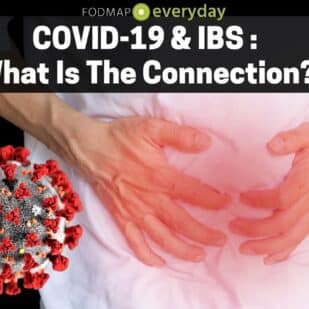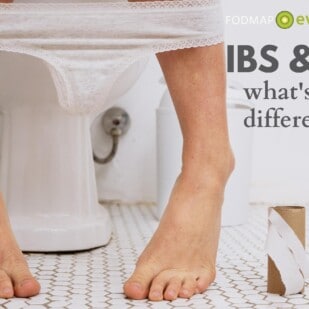Editors note: Medical decisions should be made between you and your doctor. This information is provided for informational purposes only.
A series of vaccinations – and proper precautionary measures such as social distancing, mask wearing and regular handwashing — is the best way to prevent against COVID-19 infection.
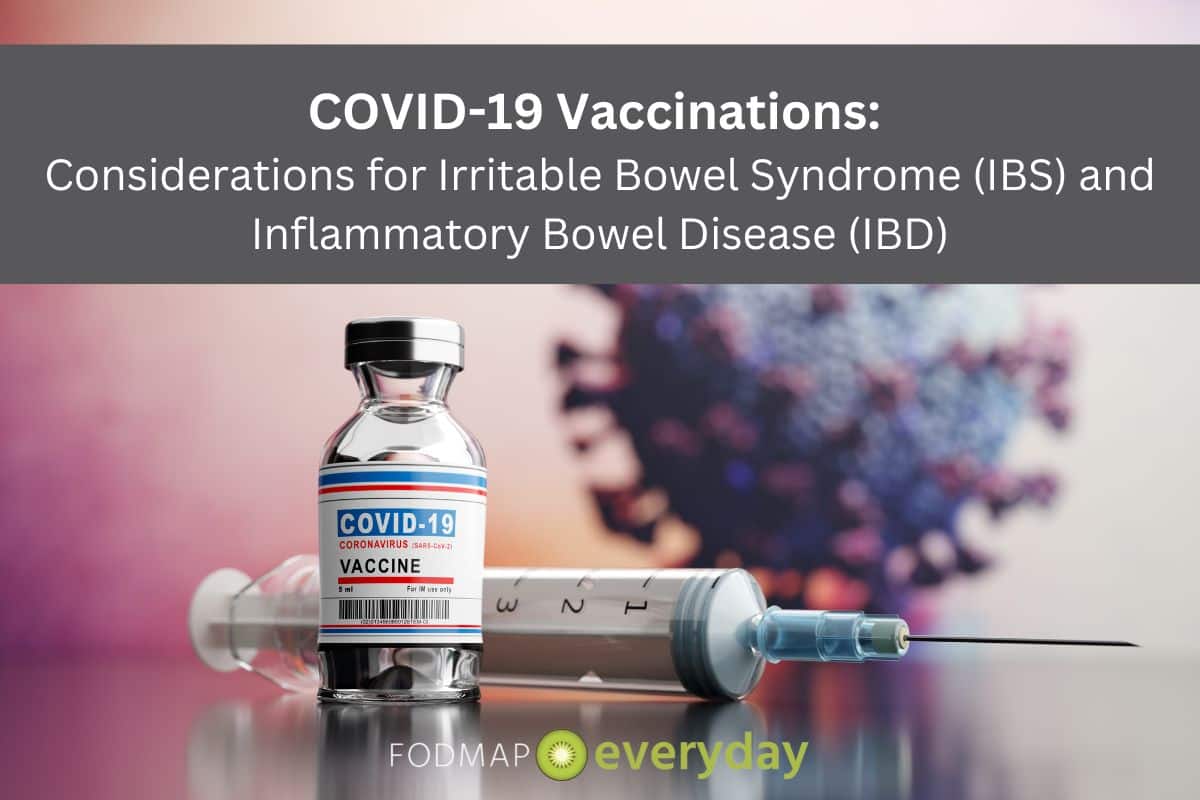
As scientific data has shown, vaccinations aren’t foolproof in preventing illness with COVID-19, however receiving all available vaccinations in a timely manner can indeed prevent against longer-term complications associated with COVID-19 and reduce chances of hospitalization, severe respiratory distress, or organ failure.
You may want to read all of our articles in our COVID-19 and IBS Series:
- IBS & The Coronavirus
- COVID-19 & Irritable Bowel Syndrome (IBS): What Is The Connection?
- COVID-19 & Irritable Bowel Syndrome (IBS): “Long COVID”, Mast Cell Activation & Histamine Intolerance
Can COVID-19 Vaccinations Cause Gut Distress?
It is true that COVID-19 vaccinations can cause some (mostly short-term) discomfort, including heightened gut symptoms in some individuals, including those with pre-existing irritable bowel syndrome (IBS). While knowing the reason why symptoms may arise doesn’t provide great relief from such symptoms, it can be helpful to remember that your body is doing what it needs to be doing to keep you healthy and safe. So, let’s review how the mRNA vaccines (the main, but not only, vaccines used in the US, including those from Pfizer-BioNTech and Moderna) against COVID-19 work.
How COVID-19 Vaccines Work
Following injection, the mRNA vaccine enters your body’s cells and enables them to produce a harmless segment of what is called a spike protein. (A spike protein is found on the surface of the SARS-CoV-2 virus, which causes COVID-19 infection). Next, our cells display this newly produced spike protein on their surface. Our immune system then recognizes that this protein doesn’t belong there and mounts an immune system response to produce antibodies and other active immune cells to fight off what it believes to be an invader.1
In this way, our bodies learn how to recognize the SARS-CoV-2 virus and fight against it in any future encounters (e.g., when your body is exposed to it after close contact with someone infected). Thus, any side effects caused by the vaccination are generally positive signs the body is building protection.1 The most common side effects from mRNA vaccines include fatigue, fever, headache, or pain at the site of the injection in the days following vaccination.1
Digestive Upset Can Occur
While studies remain quite limited, the development of gut symptoms such as diarrhea, nausea or abdominal pain can occasionally occur following vaccination against COVID-19. The hypothesis is that the viral spike protein binds to cells in the gastrointestinal tract similar to that of the actual virus, promoting dysbiosis and inflammation.2
According to the Vaccine Adverse Event Reporting System (VAERS), about 3% of all individuals receiving COVID-19 vaccines experience diarrhea following vaccination.3 One small study reported that 30% of patients who visited an emergency department following vaccination had experienced gut issues including abdominal pain, diarrhea, dyspepsia, lack of appetite nausea, or blood in the stool.4 Generally, adverse reactions following COVID-19 vaccination are similar to symptoms resulting from infection with COVID-19; something termed “Vaccine-Induced COVID-19 Mimicry.” 4
For more on the connection between of COVID-19 and IBS please read: COVID-19 & Irritable Bowel Syndrome (IBS): What Is The Connection?
Digestive symptoms typically appear within several days after vaccination, and mainly after the first vaccination dose (versus any following doses).4 The study found that women were more likely than men to experience post-vaccination gut symptoms, especially those in the 50–59-year-old age group, while men were more likely to experience more severe post-vaccination gut distress. Additionally, as to be generally expected, older individuals with other comorbidities, such as pre-existing kidney disease, cardiovascular disease or endocrine disorders were more likely to experience more severe vaccine reactions.4
Bottom line: The COVID-19 vaccination may cause transient diarrhea or abdominal pain in some individuals, however for most these are not serious and pass within days to a few weeks after vaccination. If you have a history of pre-existing gut issues (such as IBS, diverticulitis, dyspepsia, peptic ulcer disease or another functional gut disorder), it is recommended you discuss the possible side effects with your doctor and be monitored for any potential worsening of these conditions post-COVID-19 vaccination.
Unique Vaccination Concerns for Inflammatory Bowel Disease Patients
Inflammatory Bowel Disease (IBD) is a term used to describe two gut conditions: ulcerative colitis and Crohn’s disease. Ulcerative colitis uniquely affects the large intestine, while Crohn’s can affect any part of the gastrointestinal tract, from mouth to anus. 5 Though IBD and IBS can share many of the same symptoms, the primary difference is the degree of inflammation caused the body’s immune system attacking the gastrointestinal tract in IBD, and the potential for structural changes to the bowel over time. 5 In very serious situations, portions of the intestines may need to be resected to remove damage caused by chronic inflammation.
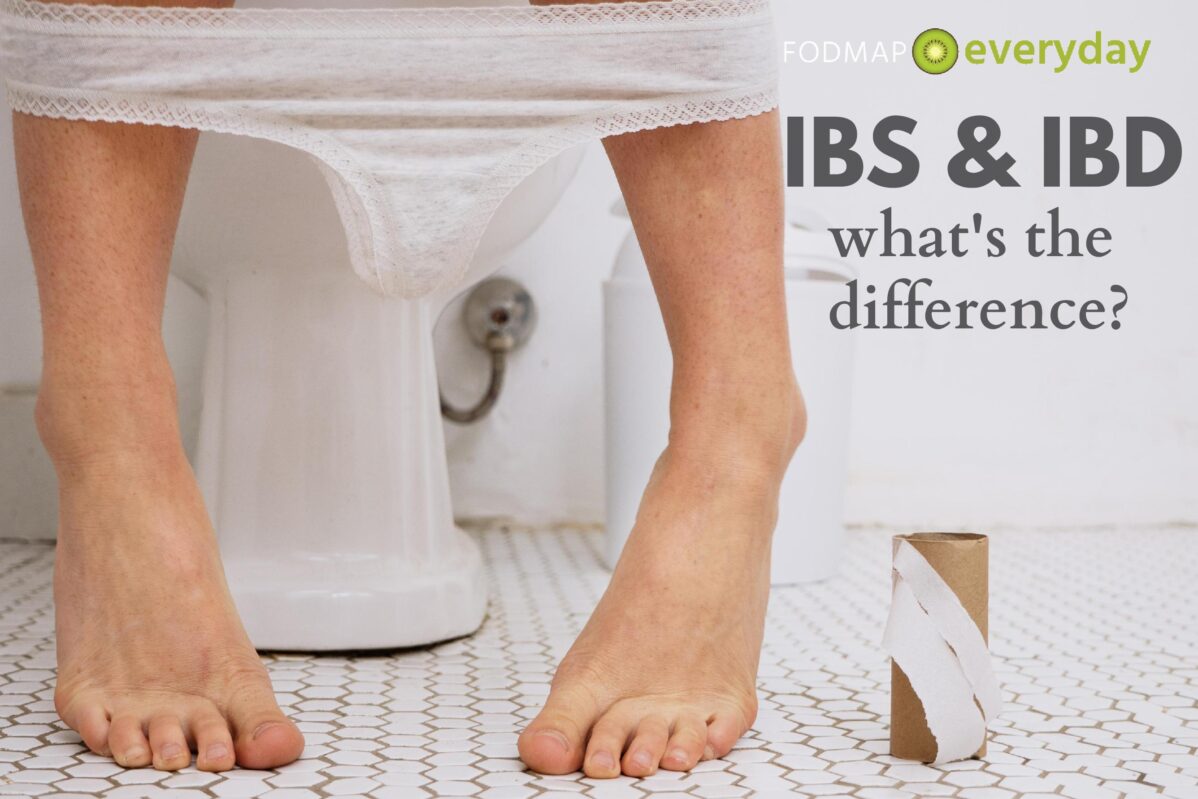
You may want to read: IBS & IBD what’s the difference?
Medications used to treat IBD often include biologics and immunosuppressants (also called immunomodulators) in order to reduce the activity of the immune system and combat the deleterious effects of chronic inflammation. Biologics target certain inflammation-causing proteins by blocking chemical messages from the immune system that trigger a cascade of inflammatory events in the IBD sufferer’s gut, thereby serving to reduce the response of the immune system. 6
Immunosuppressants play an important role in enhancing the effectiveness of biologic medications, by reducing immune system activation which might cause the body to reject the biologic.7 Examples of immunosuppressants include methotrexate, azathioprine, 6-mercaptopurine, cyclosporine, and tacrolimus.7
The challenges of altered immune response (or being “immune-compromised”) include a higher risk of developing infection such as COVID-19, and lack of clarity around how someone with IBD might respond to the COVID-19 vaccination (which requires an immune system response to fully protect an individual from COVID-19). In addition, most COVID-19 vaccines were not tested on patients with IBD during vaccine trials, so there has been concern over the past 2 years that developed vaccines may not be fully effective and/or safe for these individuals.8 Therefore, we’ll explore the latest science around this topic below.
Safety & Efficacy Of COVID-19 Vaccines & IBD Patients
Overall, it appears that COVID-19 vaccines are quite effective for individuals with IBD. Studies have reported anywhere from 94%-100% seroconversion (protection from the virus via development of antibodies against COVID-19 in the blood).9, 10 One study looked specifically at the effectiveness of COVID-19 vaccines in individuals using immunosuppressant and biologic medications and found that TNF-α inhibitors used alongside immunosuppressive treatment were associated with a lower post-vaccination antibody response, however there appeared to be no impacts for any of the biological drugs used.7
Other studies noted that the type of IBD disease or medication had no significant effect on the level of antibodies developed, offering a high level of confidence for IBD sufferers in receiving strong protection from COVID-19 vaccines. 10, 11
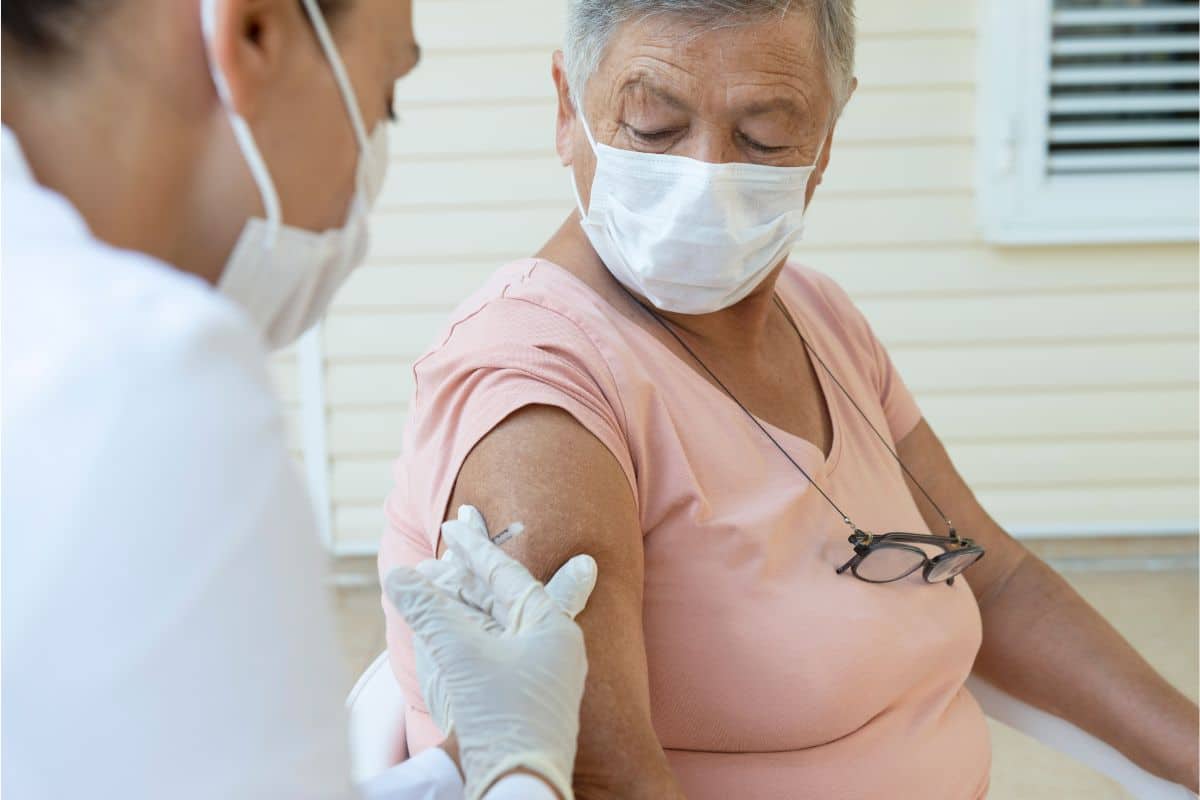
In terms of infection with COVID-19 following vaccination, the number of IBD patients who contracted COVID remained small across a wide number of studies. In general, the infection rate in vaccinated individuals ranged from 0.03% to 0.05%, with most of these infections occurring before the second dose of vaccine or within 1-2 weeks of receiving the second dose.12
There have been reports of exacerbation of IBD (worsening symptoms, increased inflammation, increased need for medication such as steroids) following vaccination against COVID-19, but studies have indicated very similar rates of IBD flares in both vaccinated and unvaccinated patients, demonstrating these issues may not be related to vaccinations themselves.10, 11 Side effects, or adverse reactions to the vaccines (such as those mentioned above in the section for IBS), were also found to be similar in occurrence between groups with and without IBD.10
Ultimately, more than two years of study on the effects of COVID-19 vaccines in IBD patients have found the vaccinations to be safe and efficacious.
While each individual’s IBD and treatment regimen may be different, vaccination is strongly recommended by the International Organization for the Study of Inflammatory Bowel Disease (IOIBD), British Society of Gastroenterology, Crohn’s and Colitis Foundation, and other gastroenterological medical experts.10
In some cases, such as older individuals or patients treated with anti-TNF monotherapy and combination therapy, tofacitinib, and systemic corticosteroids, an additional booster may be useful.10 Thus, individuals taking immunosuppressive drugs for IBD are advised to work closely with their healthcare team to determine the right vaccination strategy and ensure proper prevention and best health outcomes.
The Takeaway
Vaccinations against COVID-19 infection are effective in reducing risk for serious illness and are recommended for sufferers of IBS and IBD. Certain gut symptoms can result from COVID-19 vaccinations, especially for those who are already vulnerable to intestinal distress, however the symptoms tend to be mild and short-lived.
If you have concerns about getting a COVID-19 vaccination or booster, please discuss possible side effects and related implications with your healthcare team. And, if you have recently had your COVID-19 vaccination or booster and are experiencing heightened gut issues, contact your doctor if these symptoms seem to be severe or last longer than a few weeks.
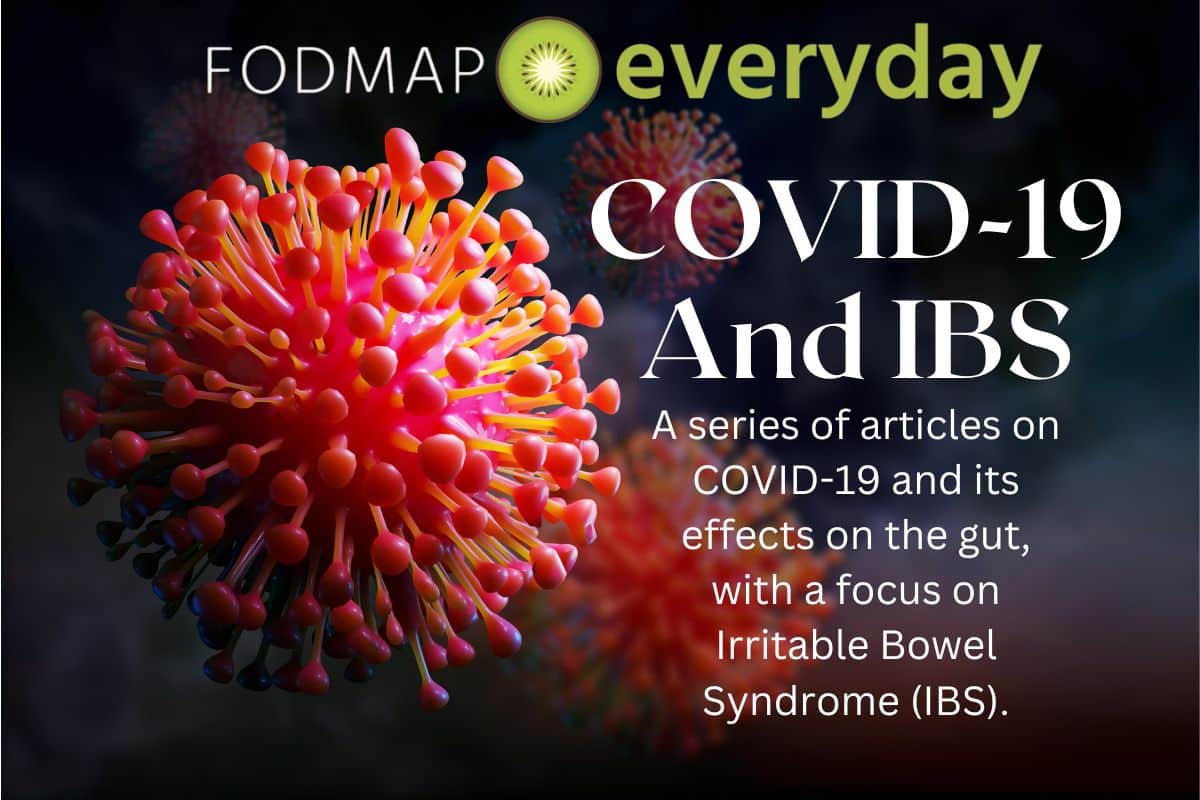
You may want to read all of our articles in our COVID-19 and IBS Series.
References:
- Centers for Disease Control, Understanding mRNA COVID-19 Vaccines, https://www.cdc.gov/coronavirus/2019-ncov/vaccines/different-vaccines/mRNA.html. Updated July 15, 2022. Accessed September 10, 2022
- Ajmera, Kunal et al. “Gastrointestinal Complications Of COVID-19 Vaccines”. Cureus, 2022. Cureus, Inc., https://doi.org/10.7759/cureus.24070. Accessed 17 Sept 2022.
- Akaishi T, Takahashi T, Sato S, Jin X, Masamune A, Ishii T. Prolonged Diarrhea Following COVID-19 Vaccination: A Case Report and Literature Review. Tohoku J Exp Med. 2022 Jul 9;257(3):251-259. doi: 10.1620/tjem.2022.J043. Epub 2022 May 27. PMID: 35644543.
- Lee DS, Kim JW, Lee KL, Jung YJ, Kang HW. Significance of digestive symptoms after COVID-19 vaccination: A retrospective single-center study. Am J Emerg Med. 2022 Aug;58:154-158. doi: 10.1016/j.ajem.2022.05.044. Epub 2022 May 28. PMID: 35691237; PMCID: PMC9144838.
- “Inflammatory Bowel Disease”. NHS.UK, 2022, https://www.nhs.uk/conditions/inflammatory-bowel-disease/#:~:text=Inflammatory%20bowel%20disease%20(IBD)%20is,the%20colon%20(large%20intestine). Updated April15, 2020. Accessed September 13, 2022.
- “Understanding Biologics and Inflammatory Bowel Disease”. University Of Chicago Medicine, 2022, https://www.uchicagomedicine.org/conditions-services/inflammatory-bowel-disease/treatment/understanding-biologics-and-inflammatory-bowel-disease-crohnscolitis#:~:text=Different%20Types%20of%20Biologics%20for%20IBD&text =They%20work%20by%20blocking%20a,can%20help%20heal%20the%20intestine.
- “Immunosuppressants – IBD Journey – Treatment and Medications – Immunosuppressants”. Crohn’s and Colitis Canada, 2022, https://crohnsandcolitis.ca/About-Crohn-s-Colitis/IBD-Journey/Treatment-and-Medications/Immunomodulators. Accessed September 13, 2022.
- Kubas A, Malecka-Wojciesko E. COVID-19 Vaccination in Inflammatory Bowel Disease (IBD). J Clin Med. 2022 May 9;11(9):2676. doi: 10.3390/jcm11092676. PMID: 35566802; PMCID: PMC9104993.
- Tabesh, Elham et al. “Comparison The Effects And Side Effects Of Covid-19 Vaccination In Patients With Inflammatory Bowel Disease (IBD): A Systematic Scoping Review”. BMC Gastroenterology, vol 22, no. 1, 2022. Springer Science And Business Media LLC, https://doi.org/10.1186/s12876-022-02460-1. Accessed 13 Sept 2022.
- Weaver, Kimberly N., Michael D. Kappelman, and Millie D. Long. “COVID-19 Vaccination Among Individuals With Inflammatory Bowel Disease: Perception, Efficacy, and Safety.” Gastroenterology & Hepatology 18.7 (2022): 389
- Lev-Tzion, Raffi et al. “COVID-19 Vaccine Is Effective In Inflammatory Bowel Disease Patients And Is Not Associated With Disease Exacerbation”. Clinical Gastroenterology And Hepatology, vol 20, no. 6, 2022, pp. e1263-e1282. Elsevier BV, https://doi.org/10.1016/j.cgh.2021.12.026. Accessed 13 Sept 2022.
- Weaver, Kimberly N et al. “Impact Of SARS-Cov-2 Vaccination On Inflammatory Bowel Disease Activity And Development Of Vaccine-Related Adverse Events: Results From PREVENT-COVID”. Inflammatory Bowel Diseases, 2021. Oxford University Press (OUP), https://doi.org/10.1093/ibd/izab302. Accessed 13 Sept 2022.
